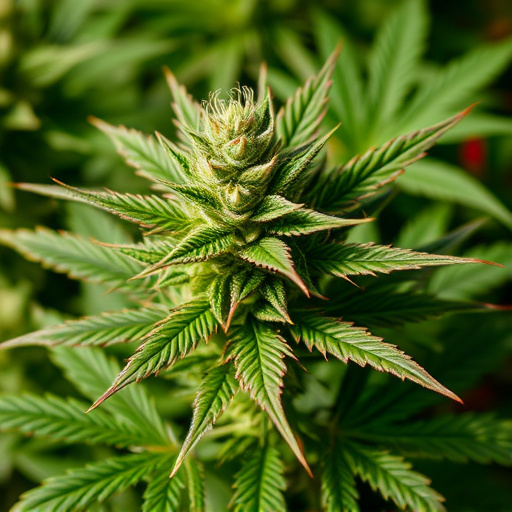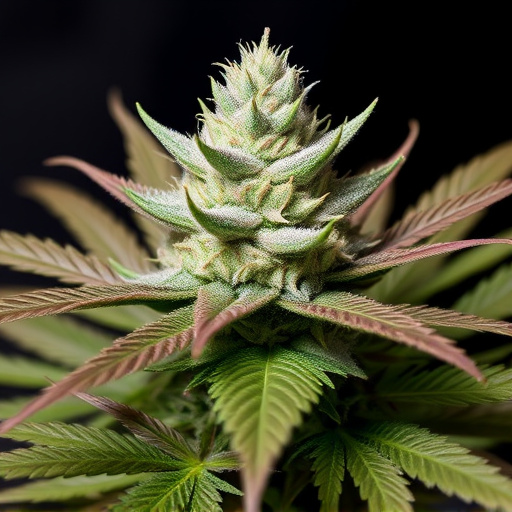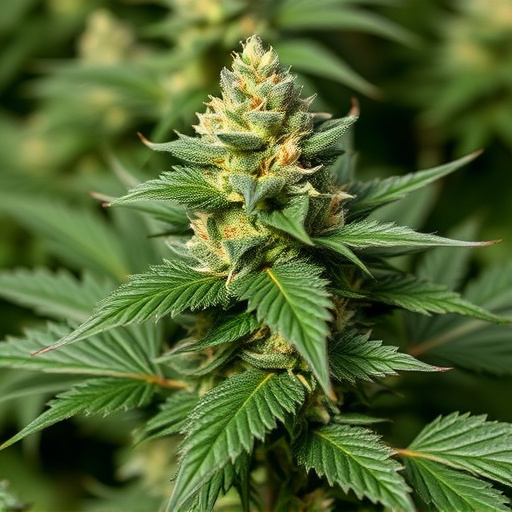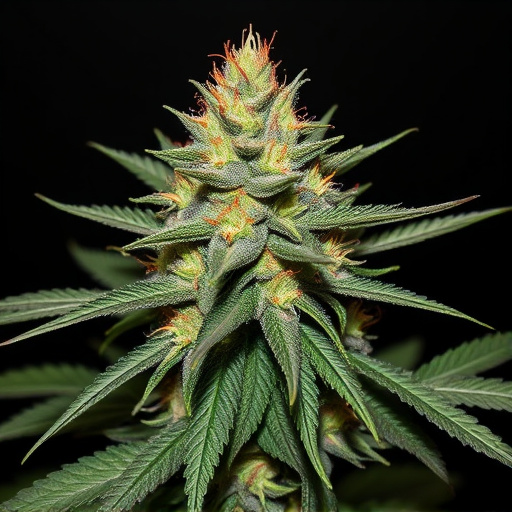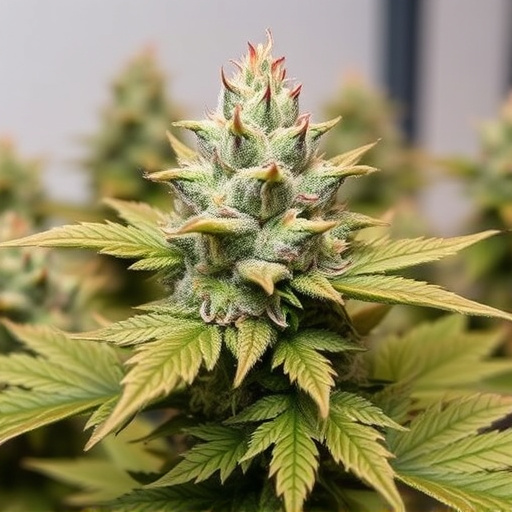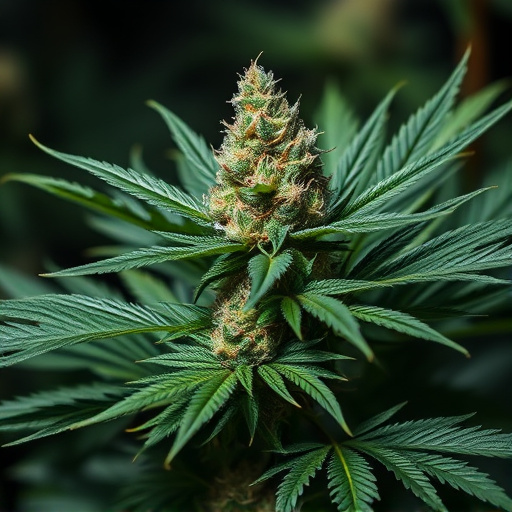Smoking potent "big bud" cannabis offers a mix of enjoyable and risky effects, impacting senses, heart rate, and mental state. Short-term issues include dry mouth, red eyes, and memory loss; long-term use may lead to respiratory problems, mental health disorders, and brain development issues in young adults. Responsible consumption is crucial, especially with high-potency strains. Support groups, therapy, healthy habits, and CBD-rich big bud strains aid cannabis addiction recovery.
“Unraveling the side effects of smoking weed, especially those linked to potent ‘Big Bud’ strains, is crucial for both casual users and those considering cannabis. This article explores the intricate web of short-term impacts, from cognitive alterations to physiological changes, that can be attributed to these high-potency varieties. Furthermore, it delves into the long-term health implications for regular users, highlighting potential risks. We also provide practical solutions and coping strategies to address addiction, offering a comprehensive guide for navigating the complexities of cannabis consumption.”
- Short-Term Effects of Big Bud Strains Consumption
- Long-Term Health Implications for Regular Users
- Potential Solutions and Coping Strategies for Addiction
Short-Term Effects of Big Bud Strains Consumption
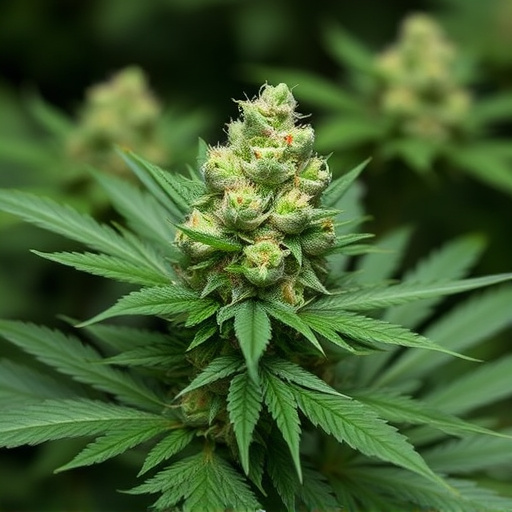
Smoking potent big bud strains can lead to a range of short-term effects that are both physical and mental. Users may experience heightened senses, increased heart rate, and a euphoric or relaxed state due to the high concentrations of THC present in these varieties. However, this heightened state can also bring about anxiety, paranoia, and difficulty concentrating for some individuals, especially those who are new to such potent cannabis.
The impact on the body is also significant. Short-term physical effects include dry mouth, red eyes, and a feeling of thirst. In some cases, users might experience dizziness or even temporary memory loss. These effects can be more pronounced if consumed in excess or by inexperienced smokers, highlighting the importance of understanding one’s tolerance and limiting intake when trying new strains like big bud.
Long-Term Health Implications for Regular Users
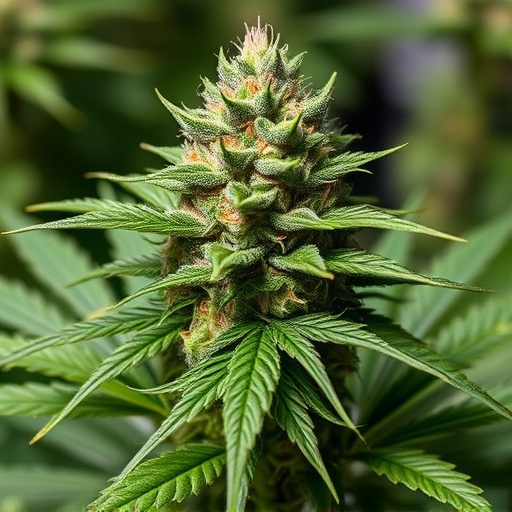
Regular, long-term use of cannabis, especially potent big bud strains, has been linked to several potential health implications. Research suggests that chronic exposure can impact brain development and function, particularly in adolescents and young adults. This may lead to difficulties with memory, attention, and decision-making abilities. Additionally, frequent smokers might experience respiratory issues due to the tar and chemicals in cannabis smoke, which can irritate the lungs and potentially increase the risk of chronic obstructive pulmonary disease (COPD).
The endocannabinoid system, responsible for maintaining balance in the body, is also affected by regular use. This can disrupt normal hormone regulation and contribute to various health issues over time. Some studies even hint at a potential link between cannabis use and mental health disorders, such as anxiety and depression, though more research is needed to confirm these associations. It’s crucial to consider these long-term effects, especially for those regularly consuming high-potency big bud strains.
Potential Solutions and Coping Strategies for Addiction
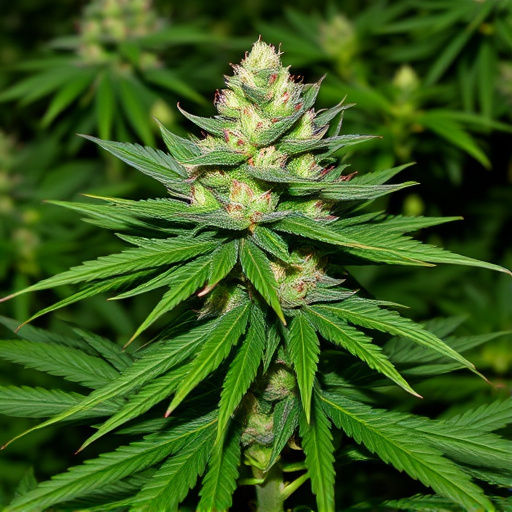
If you’re struggling with cannabis addiction, it’s essential to know that help is available. The first step towards recovery often involves recognizing the issue and reaching out for support. Potential solutions include joining support groups like Narcotics Anonymous (NA), where sharing experiences and strategies can be incredibly beneficial. Therapy, both individual and group-based, can also provide valuable tools for managing cravings and understanding underlying causes of addiction.
For those interested in alternative approaches, certain big bud strains known for their high CBD content might offer relief without the intense psychoactive effects associated with THC. These strains could help manage withdrawal symptoms and reduce cravings. Additionally, incorporating healthy habits like regular exercise, mindfulness practices, and a balanced diet can aid in overcoming addiction by promoting overall well-being.
While the recreational use of marijuana may seem appealing, especially with popular strains like Big Bud promising enhanced relaxation, it’s crucial to be aware of its potential side effects. Short-term consumption can lead to cognitive impairment and memory issues, while long-term use may contribute to respiratory problems and mental health disorders. However, with the right coping strategies, addiction is manageable. Educating oneself about these implications and seeking support are essential steps towards a healthier relationship with marijuana.

